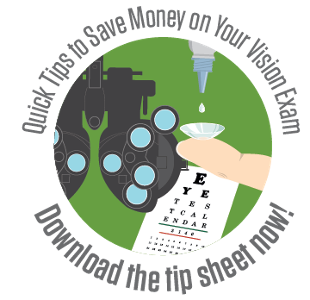By Natalia Courtois on Aug 20, 2018 @ 01:02 PM
Contact lenses are the number one choice for many in need of vision correction. While others may prefer wearing glasses, lenses offer a certain freedom that they don’t want to give up.
- They offer a clearer and crisper vision. Since the lenses are right on the eye, they give you a wider field of view and excellent focus. No more steamy vision with change of humidity and temperature!
- They’re great for an active lifestyle since you won’t have to worry about them falling out and breaking like glasses would. They also won’t get in the way of wearing goggles or helmets.
- You can change your look with colored/tinted lenses.
There are several types of lenses that can complement your lifestyle and medically necessity. Do you know the different types? Let’s cover some of the basics! There are two major types of contact lenses- soft and rigid gas permeable (RGP).
RGP Contact Lenses
These lenses are more durable and resistant to deposit buildup. They generally give a clearer and crisper vision. Long term, they can be less expensive than soft contact lenses because they are less likely to tear. Due to their rigidness, they are not as comfortable as soft contacts. It can take a few weeks to adjust to wearing RGPs. This type of lens is also available in tints and bifocals.
Soft Contact Lenses
These lenses are made to be what they are called – soft. They’re made of flexible plastics that allow oxygen to pass through to the cornea. Soft contact lenses tend to be more comfortable than RGP lenses. It generally takes just a few days to adjust to soft contact lenses. Since soft contact lenses have a short lifespan, there are different types to consider:
- Daily-wear soft lenses: These lenses are made to be worn for a short period of time (ideally once a day.) Since they wear out easier than other lenses, they must be replaced in a timely fashion. Considering they need to be changed often, they are great for active lifestyles since they’ll always feel like new. They are also available in tints and bifocals.
- Extended-wear disposable lenses: They are available for overnight or continuous use up to 30 days. The length of continuous wear depends on the lens type and your eye doctor’s evaluation of your tolerance for overnight wear. It’s important for your eyes to rest without lenses after each session of continuous use.
The type of lenses that will suit your needs will vary based on your medical necessity and comfort. If you decide to pursue with tinted contact lenses, please make sure they are FDA approved. Wearing any kind of contact lenses without a prescription can cause some serious damage, such as:
- A scratch on your eyeball
- Itchy eyes
- Decrease in vision
- Eye infections
- Blindness
Prior to purchasing new contacts, make sure set up an appointment with your eye doctor (optometrist). You want to make sure that your eyes are in good health! Talk to your optometrist about how frequently you should get your eyes checked. Considering that certain eye conditions can go undiagnosed and can cause blindness, early detection is key to keeping your eyesight. Has it been a while since you’ve visited an optometrist? Make sure you’re getting the best deal on your vision exams and download our free tip sheet.





comments